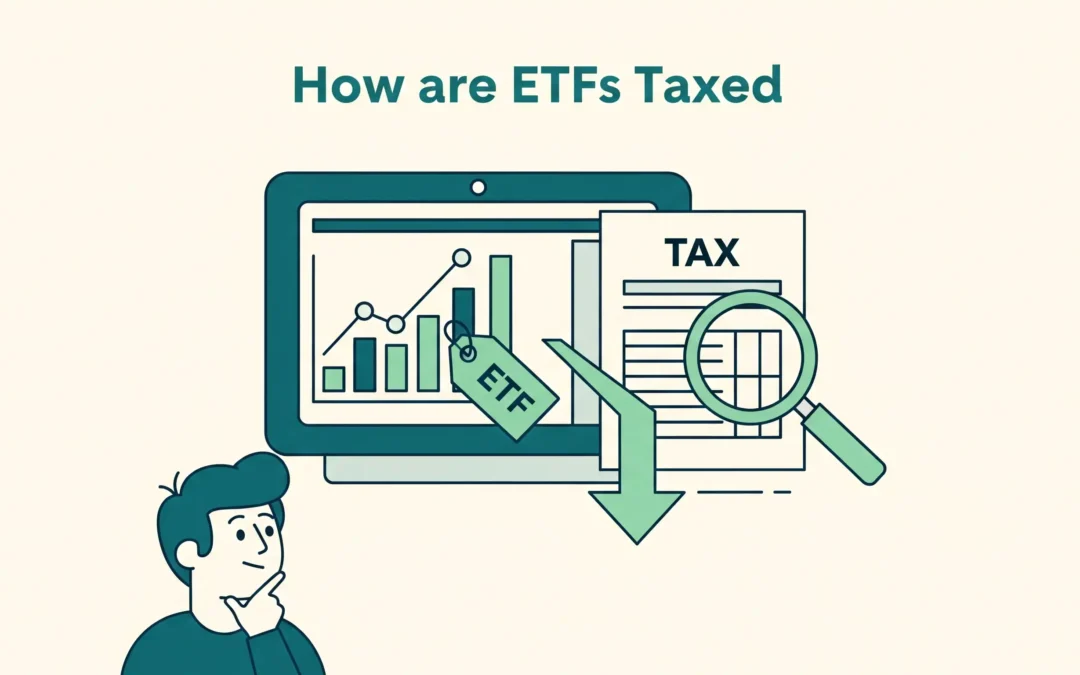Taxation on ETFs (Exchange Traded Funds) is dependent on various factors. But first, it is important to know that there are different types of ETFs. Taxing them varies, based on whether they are equity or debt-based. They are a valuable addition to your portfolio as they can enhance your overall return significantly. The underlying asset also plays an important part in determining the type and tax rate of the ETF.
This article will help you to clear all your confusion and give clarity on ETFs and how they are taxed in India.
Understanding ETFs
Exchange-traded funds (ETFs) are investment funds that trade on stock exchanges and mirror the performance of a particular index, commodity, or asset class. They invest in a diverse portfolio of securities without actually investing in individual stocks.
For instance, investing in the Nippon India Nifty 50 ETF exposes you to the top 50 companies listed on the NSE in a single trade since it replicates the Nifty 50 Index.
Types of ETFs
In India, exchange-traded funds (ETFs) are classified according to the assets they track, including foreign markets, debt instruments, gold, and equity indices. Because it dictates how capital gains from these ETFs are taxed, this classification is very important.
- At least 90% of the investments made by equity-oriented exchange-traded funds (ETFs) go into domestic stocks, such as the Sensex or Nifty 50.
- Debt ETFs make investments in fixed-income securities, such as corporate bonds or government securities.
- The price of actual gold is tracked by gold exchange-traded funds (ETFs).
- International ETFs make investments in foreign stocks or indexes, such as the NASDAQ 100.
| Type of ETF | Underlying Asset | Tax Treatment |
| Equity ETFs | Indian equity indices | Treated as Equity |
| Debt ETFs | Bonds, T-bills | Treated as Debt |
| Gold ETFs | Physical gold | Treated as Debt-like |
| International ETFs | Foreign stocks or indices | Treated as Debt-like |
Capital Gains Tax on ETFs
1. Equity ETF
ETFs that invest at least 90% of their assets in Indian listed stocks are known as equity ETFs (e.g., Nifty 50, Sensex ETFs). These are eligible for the same tax treatment as equity mutual funds and direct stock investments.
Gains on Short-Term Capital (STCG):
- It applies if the units are sold within a year after the purchase.
- For equity-oriented ETFs (≥90% in Indian equities) sold within 12 months, STCG is taxed at a flat 20% (without indexation), plus applicable cess and surcharge.
Gains on Long-Term Capital (LTCG):
- It applies if the units are held longer than a year.
- 10% tax (without indexation) is applied only to long-term capital gains exceeding ₹1.25 lakh in a fiscal year.
For instance, the first ₹1.25 lakh of long-term capital gains is exempt if you sell an equity-oriented ETF, such as the Nifty 50 ETF, after 14 months and receive ₹1.75 lakh. You only pay 12.5% tax on the gains exceeding ₹1.25 lakh, which in this case is ₹50,000, resulting in a tax of ₹6,250 (plus cess).
2. Non-Equity ETFs
ETFs classified as non-equity are those that do not invest 90% or more in Indian stocks. This comprises:
- Debt ETFs (like the Bharat Bond ETF)
ETFs that mirror the basket of fixed-income securities, like bonds, are called debt ETFs. They offer lower volatility and more predictable returns by investing in fixed-income securities such as government bonds or PSU debt. Compared to traditional debt funds, they offer superior liquidity and stability, making them the perfect choice for conservative investors - Gold ETFs
Gold ETFs give investors exposure to gold without actually holding it by tracking the domestic price of physical gold. They are frequently employed as a hedge against inflation or in times of market turbulence. - International ETFs
International ETFs invest in foreign indices such as the S&P 500 or the Nasdaq-100, which are classified as equity in the international market. But, in India, they are taxed as non-equity or debt-based ETFs.
| Parameter | Equity-Oriented ETFs | Non-Equity ETFs (Debt, Gold, Intl) |
| Underlying Assets | More than or equal to 90% in Indian equities | Less than 90% in Indian equities |
| Short-Term Holding | Shorter than 12 months | Any holding period |
| STCG Tax Rate | 20% flat (without indexation) | Depends on the investor’s income tax slab |
| Long-Term Holding | More than 12 months | Any holding period |
| LTCG Tax Rate | 12.5% on gains exceeding ₹1.25lakh/year | Taxed as per the slab of the investor |
| Indexation Benefit | Not applicable | Removed from FY 2023–24 onwards for all non-equity ETFs |
| Examples | Nippon Nifty 50 ETF, ICICI Sensex ETF | SBI Gold ETF, Motilal Oswal Nasdaq 100 ETF |
Bottomline
The conclusion can be drawn that ETFs can be a valuable addition to your portfolio to increase the net return. However, understanding taxes will help you maintain the returns and avoid unnecessary losses. For investors holding an equity ETF for 10 months may be extended to a few more months as it will significantly reduce the tax charged. But in the case of debt-based ETFs, the taxation rate depends on an individual’s tax slab rather than the holding period.
All these are possible if the investor is financially aware and has an understanding of how ETFs are taxed.
Written by: Tanya Kumari


